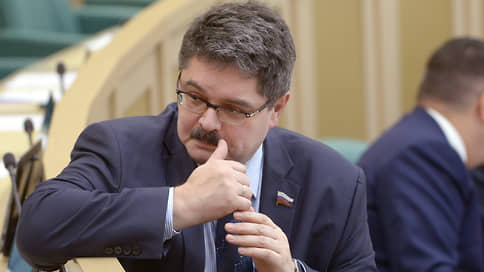Retribution at the legislative level – Kommersant
[ad_1]

Deputies, senators and experts discussed on Wednesday at a round table the topic of retribution for war crimes during a special military operation (SVO) in Ukraine. They came to the conclusion that it was necessary to arrange a military tribunal after the SVO, as well as to recognize the Security Service (SBU) and the Main Intelligence Directorate (GUR) of Ukraine as terrorist organizations so that their employees could be “persecuted all over the world.” However, outside experts do not consider these initiatives useful: before recognizing someone as a terrorist, it is necessary to conduct an investigation and bring charges, and they can be tried without a special tribunal.
The topic of the round table, which took place on May 10 in Parliamentary Newspaper, was designated as “Without a statute of limitations. What was and will be the retribution for the crimes of the Nazis during the Second World War and the NWO? Its participants willingly drew historical parallels and offered to use the lessons of the past.
So, Senator Anatoly Shirokov said that in the USSR there was never “retribution of the crowd”, but only “retribution of the law.” This should also be the case with those who “rob, kill, rape Russians,” but at the same time, one cannot allow the illusion that “evil will go unpunished.” Therefore, according to the senator, Russia needs to engage in “organization of retaliation” both in the military sense and in the “legislative formalization.” Mr. Shirokov expressed his gratitude to the staff of the Investigative Committee, who “carefully document the crimes of Ukrainian Nazis in the territory of Donbass”, which will make it possible to hold a tribunal in the future. Member of the Civic Chamber (OP) Maxim Grigoriev added that thousands of criminal cases have been opened on the facts of such crimes – “so many that there are not enough investigators, we will investigate for decades.”
Member of the Human Rights Council, former investigator Yevgeny Myslovsky recalled that until 1947, according to the Nuremberg Tribunal, war criminals were “publicly hanged,” and after the abolition of the death penalty, they began to be sentenced to 25 years in prison. “We, on the one hand, have a vowel wish to “wet in the toilet”, on the other hand, our people brought up on humanism do not kill all prisoners in a row. We are accumulating an array of prisoners. At the same time, we have the death penalty for murder, although there is a moratorium, but there is no death penalty for international terrorism and sabotage. We must somehow get out of this situation,” Mr. Myslovsky reasoned. “Either take no prisoners, or if you take, then judge. Well, they will be sentenced to 25 years – and then what?
“The theme of retribution should be present in our discussions and in our legislation,” political analyst Pavel Danilin agreed. organize the killing of Russian citizens. Therefore, the GUR and the SBU must be declared terrorist organizations, and their employees terrorists in order to “persecute all over the world,” the political scientist is sure: “The murders of Daria Dugina and Vladlen Tatarsky, the attempt on Zakhar Prilepin show that they will not stop. Every citizen of Russia must understand that he can become a victim of Ukrainian terrorism. Many people ask why the Russian state tolerates this.” Maxim Grigoriev found something to add here, too, remembering the poll of the Ukrainian agency UNIAN about which of the Russian public figures should be killed.
State Duma deputy Artem Turov (United Russia) approved the idea of “recognizing a number of structures of pseudo-Ukrainian power as terrorist organizations”, which will allow “to act as the Russian Federation acted with terrorists: if they could not be brought to justice, they were destroyed.” He also supported the proposal to hold a “tribunal following the example of Nuremberg” at the end of the SVO.
The first deputy chairman of the State Duma committee on legislation, the former first deputy prosecutor of Moscow, Yury Sinelshchikov (KPRF), who did not participate in the round table, believes that until an investigation into cases of high-profile terrorist attacks has been carried out, the conversation about recognizing the SBU and the GUR as terrorist organizations is “empty, if not harmful” . “It is necessary to establish specific circumstances in order to recognize a terrorist organization. I haven’t seen any material. There will be materials – you can have a conversation, ”the deputy explained to Kommersant.
Aleksey Elaev, senior lecturer at the Western Branch of the RANEPA, notes that the recognition of the SBU and the GUR as terrorist organizations with the possibility of subsequent prosecution of their employees around the world is an “extremely complex” issue, located “at the junction of conventional crimes, extradition conventions, the right to necessary defense and issues of recognition specific person as a combatant.” He also recalls that “by virtue of the anti-terrorist conventions, the creation of any separate court or tribunal for persons organizing or committing cross-border terrorist crimes is not required – national courts are enough for this.” “The refusal to extradite criminals accused of terrorism cannot be connected with political considerations, the principle of extradite or judge yourself applies. That is, either a suspect in terrorism against Russian jurisdiction should be extradited to the Russian Federation, or a state party to the convention is obliged to try him on its territory, ”explains the lawyer.
[ad_2]
Source link








